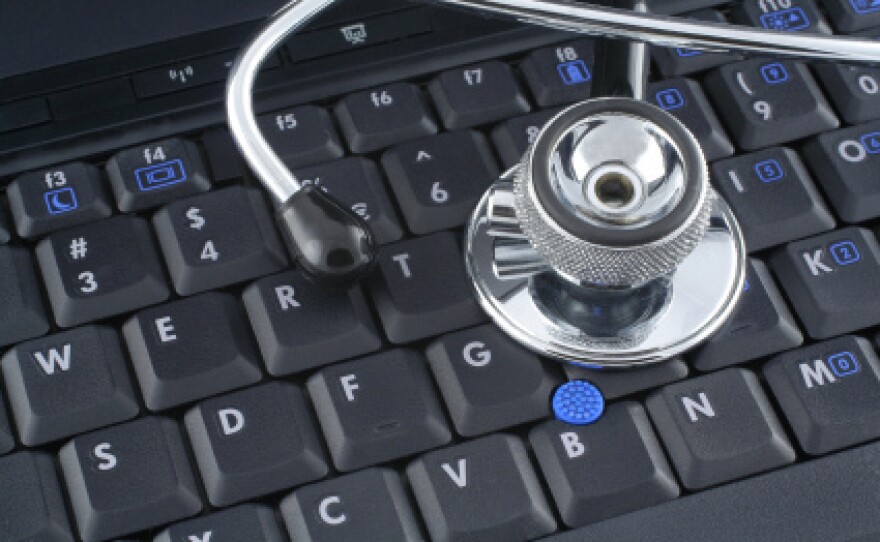The U.S. healthcare sector is currently seeing major changes to its methods for record keeping and information sharing.
This week, Digital Rochester hosted a summit to discuss how these changes will impact on the community, health care providers, and Information Technology professionals.
Information exchanges and electronic patient records are both being touted as opportunities to cut medical costs, increase care quality and create new jobs for I-T professionals.
Supporters of the shift towards digitized information sharing also say that it will encourage more comprehensive patient care and create an environment where several providers can more easily treat a single patient.
Upstate showing leadership in the sector
Director of Health IT at Innovative Solutions, Justin Copie, says Rochester could provide leadership in developing solutions that would have national application.
Rochester already utilizes an information exchange system that gives authorized medical providers access to data including test results, lab reports, and medication histories.
This kind of information sharing between practitioners is expected to cut down costs due to test duplications and the repeat of examinations.
Copie says the upstate region is already ahead of the curve when it comes to I-T in health care, and more innovations can be expected in the near future.
“One of the latest advancements that we’ll see within the next two to three years is the large-scale adoption of a personal health record, so that we can log in, we can take our health record with us – just like we would our banking information – and making sure that that’s accessible.”
Predicted benefits of the transition
Copie says this shift in the health care industry has already generated hundreds of new jobs, and created new career categories.
Gary Scialdone from the University of Rochester’s Medical Center says he likens the I-T shift in health care to the creation of the internet.
"The electronic health record is truly deeply transformational technology. It’s causing, particularly physicians to re-think their role in the total health of the patient.”
Scialdone says these technologies represent a real breakthrough and it’s critical for the health care community to leverage the benefits of their application.
With changes, some challenges
Although there is a lot of hype about the switch to electronic records, there are still some concerns about the systems.
Executive Director of the Monroe County Medical Society, Nancy Adams says there are many exciting prospects for new technologies, but there are still a lot of kinks to be worked out.
“Security is just an absolute huge issue. Unfortunately people have just been so focused on actually implementing the systems that they kind of forget about the security measures, so those kinds of things actually make me nervous.”
Adams says a push for email interaction with patients is something that needs to be monitored closely.
She also says it’s important to provide physicians with the skills and support to handle the large amounts of new data, digitization will bring.
File sharing can blur responsibility for records
Adams says problems may arise with information sharing in situations where, for example, a test is ordered for a patient and the results are shared with multiple physicians assisting with care. She says confusion about who is responsible for follow up could cause gaps in treatment.
URMC’s Gary Scialdone says another question being raised is what will happen if the systems go down?
“If they go down, the clinicians serving patients at the time suddenly have no information.”
Scialdone says servers will need to be spread out over several locations so physical damage can’t cause a shutdown.
He also says that the longer these systems are in place, the easier it will become to make sure doctors are not left without records.
“We continue to improve the availability of our systems and the rapidity at which they can recover.”
Record digitization provides better disaster preparedness
Despite her concerns about the shift, Nancy Adams from the Monroe County Medical Society says the digitization of medical records would lessen the impact of disasters like Superstorm Sandy for health care institutions.
The shift to a nationwide electronic system, she say, would improve the preservation of medical records, especially in the event of natural disasters.
“This type of technology will go a long way." Adams says. "You know in the old days a medical record would have just been destroyed, now it can be preserved even in times of disaster. So, I think those things are important.”
The switch to electronic medical records is expected to have a huge impact on the way health care is delivered.
As of last year, 55% of physicians in the U.S had adopted some form of e-record system.






